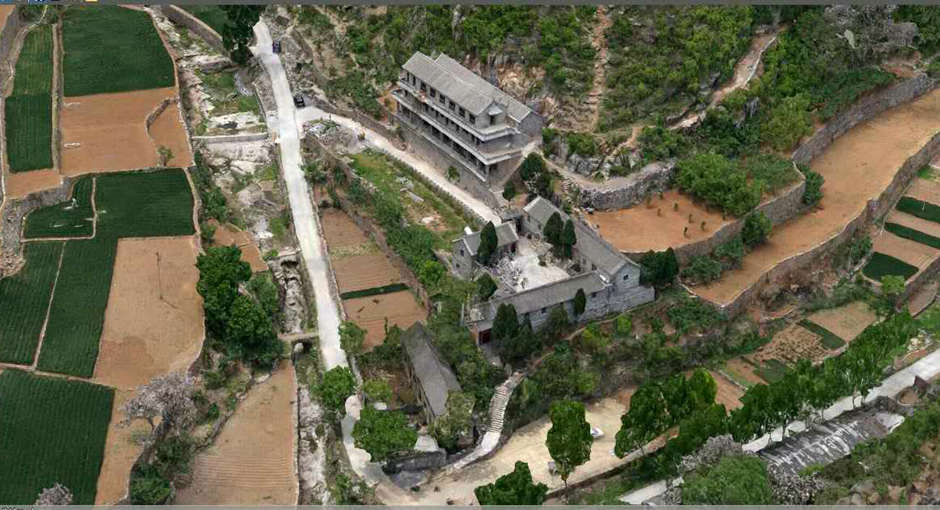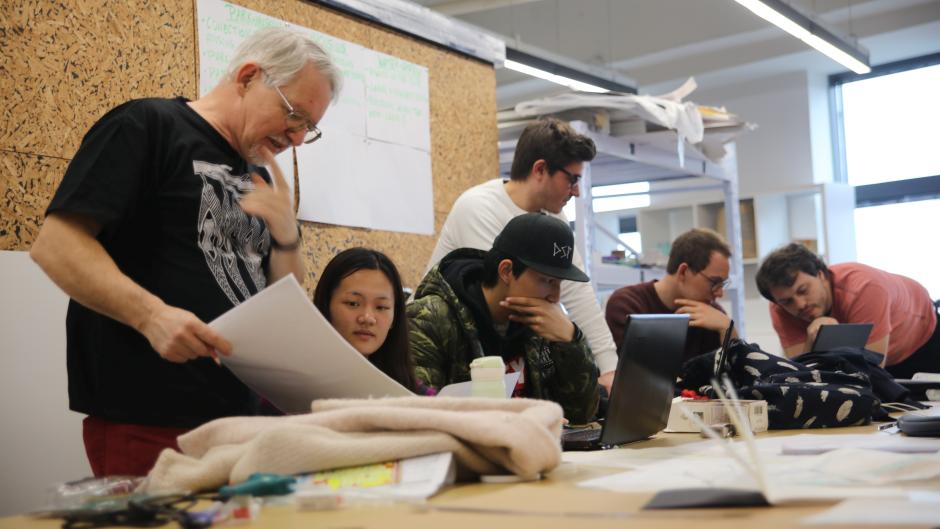18 Aug 2017
Wenpo Village in Qixian County, Henan Province is one of the poorest villages in China but has a history and heritage of over 3000 years. The BanShanTang building (pictured below), situated in the village, was built during the Ming and Qing dynasties with a stone structure and interesting architectural features. Entrepreneur Helin Feng, who was born in Wenpo Village, founded the BanShanTang Project to restore the ancient building and boost the local economy.
The Research Institute of Urbanisation (RIU) at Xi’an Jiaotong-Liverpool University is working with Helin Feng on this project and organised a seminar at the University to mark the beginning of cooperation. The seminar was focused on discussions about the protection of ancient buildings, ecological environment restoration and the preservation of traditional culture.

There are plans for the BanShanTang building to be used as a lecture hall, library and hotel when the restoration is complete. Helin wants to use this project as a starting point for the protection of the ecological environment and local traditional culture in Wenpo Village. Ultimately, he hopes the project will stimulate local economic development and help to lift the villagers out of poverty.
Hao Wu from the Henan Institute of Engineering, Dr Yiping Dong from XJTLU, and Lei Zhou from Shanghai Longzhou Investment & Management Ltd. were the main speakers at the seminar. Yixin Zhang (pictured below), director of RIU, gave a brief welcoming speech and introduced the project background and cooperation situation.

He then signed a strategic cooperation agreement for the BanShanTang Project with Chenfei Tu (pictured below, left), chairman of Zhengzhou ChengGengShan Cultural Communication Ltd. This agreement indicates that both sides will focus on restoration of the ancient village and its ecology, and on promotion of the village’s traditional culture. Both sides agreed to draw on the resources of XJTLU and of business platforms to achieve mutual benefits and win-win development.
Hao Wu from Henan Institute of Engineering gave an explanation of the main strategies, investigation processes, and current architectural designs of the Ban ShanTang Project, using 3D models to illustrate the actual scene of the site.

Lei Zhou, chairman of Shanghai Longzhou Investment & Management Ltd., delivered a speech entitled ‘Smart low-carbon town construction under PPP (Public—Private—Partnership) mode’. During the speech, Mr. Zhou introduced the significance of PPP mode and explained about how ‘characteristic towns’ – a government policy that encourages the development of particular aspects of certain towns – is an important new path for urbanisation in China.
Based on construction experience in Britain, Mr. Zhou indicated that the BanShanTang project can be the first demonstration of a ‘smart, low-carbon’ characteristic town on the Central Plain of China.

Dr Yiping Dong (pictured above) from the Department of Architecture at XJTLU delivered a speech entitled, ‘Reflections on protection and regeneration of traditional villages and local heritage’. She introduced the cultural aspects and conservation status of traditional villages, and put forward a research framework for small town architectural heritage.
Dr Dong indicated that rural construction should prioritise protection of the natural environment and moderation of development. She proposed that the ultimate goal should be to preserve the charactersitics of ‘mountains, fields, people and life’, which aroused an enthusiastic response from all participants.

During a roundtable discussion, students from XJTLU raised questions on the local climatic conditions, soil constituents, water resources and biodiversity of Wenpo Village. Participants conducted discussions on the control of operational cycles, and on the promotion of cultural values.
The panel of experts answered questions, and stated that the BanShanTang project will adopt a ‘PPP’ operational pattern and choose relatively long operation cycles to stimulate the vitality of the village. Ideas for the revival of local culture were also presented.
Finally, Yixin Zhang made a summary to give clear and definite work allocations to all teams, including the RIU’s responsibility which will be to conduct ecological and environmental research on the local soil, air, and water of Wenpo Village, analysing the entire environment and drawing up a sustainable restoration scheme for the local ecology.
editors: Tiantian Xu and Danny Abbasi
18 Aug 2017
RELATED NEWS

XJTLU hosts workshop on urban conservation and modern interventions in historic Suzhou
Students and teachers from five European schools of architecture worked with peers at Xi’an Jiaotong-Liverpool University to develop solutions for the redeve...
Learn more

Seminar on deep retrofitting of buildings
The Research Institute of Urbanisation (RIU) at Xi’an Jiaotong-Liverpool University held a seminar for experts and scholars focused on retrofitting methods f...
Learn more








